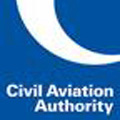Barclays snubs CAA overdraft plea
 The Civil Aviation Authority is facing a funding crisis after Barclays Bank refused to extend its overdraft limit.
The Civil Aviation Authority is facing a funding crisis after Barclays Bank refused to extend its overdraft limit.
The request by the CAA comes on the back of a soaring claims as a number of ATOL-backed companies have ceased trading. The claims include 45,000 from the collapse of XL Leisure last summer. The refusal by the high street lender could force the CAA, which is underwritten by the government, to ask for a state bail out.CAA bosses have asked for the overdraft to be extended beyond its current £60m level, according to the Independent newspaper. The demise of XL Leisure added over £12m to the overdraft.
Last month the CAA said it had paid £9m in refunds to XL Leisure customers so far. However around 4,000 claims were rejected after it made a U-turn in policy by using a legal loophole to shift the onus on to credit card companies for customers who paid fully or partly with plastic.
Speculation is mounting that the CAA is set to increase the cost of its ATOL Protection Contribution (APC) levy due to rising debt. At present travel firms selling packages collect £1 for every customer, which contributes towards providing consumer protection and replenishes the Air Travel Trust Fund.
A source close to the CAA told the Independent: “Simple economics dictate that the CAA is going to have to increase the size of the APC. In the short term, and by that I mean the end of the year, it’s likely to be hiked to as much as £2.50 per passenger. In the longer term, I can see the levy going as high as £5. At a time when the industry is suffering, this is going to hurt very badly.”
With bookings across the industry suffering in the wake of the credit crunch, the prospect of a dramatic increase in the APC is likely to face severe opposition.
Following the collapse of XL Leisure, Zoom and others last year, the CAA is thought to be taken a far stricter line on companies looking to renew their licences in March.
To qualify for a licence, ATOL holders must maintain an adequate ratio between free assets and turnover. But as turnover slumps in a downturn the number of companies that qualify also takes a hit.
A source said: “I know a number of firms that on paper clearly look like they will fail the CAA’s free asset test. They have a difficult balancing act to maintain. Come down too hard and the industry will suffer failures immediately. Wave people through and the market deteriorates. The situation could get a lot worse.”
——-

